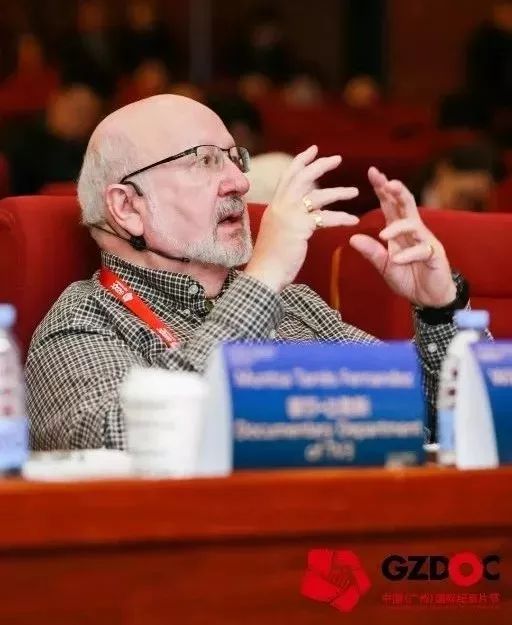Please UPGRADE Your Pass
“Decision makers are ‘gatekeepers’ to your ultimate audience. You are not making this film just for yourself: you need an audience and you must be able to communicate why your film will appeal to others.”
-- Pat Ferns, Founder of Public Pitching
During a Pitching Session, filmmakers are able to present their developing projects (sometimes could be an unfinished one) to the industry professionals, including the shooting plan, production value, existing footage, current progress, etc. By doing so, filmmakers have the opportunity of winning financial supports and professional advice for their pitches.

GZDOC 2018 “China Story”International Pitching Session
At the GZDOC ‘China Story’ International Pitching Session, each candidate will have 7 minutes to present their projects, which then follows an 8-minute discussion between the pitch talents and the decision makers. The decision makers, consisting of senior commissioning editors and content buyers,will make comments or raise questions about the projects in terms of the character depiction, storytelling techniques, possible revenues, etc. On the other hand, pitch talents will gain better understandings of their own projects and improve the filming plan.

Candidates presenting their project Baseball Boys in 2018
Considering that pitch candidates will have to give dense information about their projects in a short time, a good structure of what to tell is likely to help them stand out.This year, we invite Pat Ferns, the founder of public pitching, to share his experience and tips that sharpen a pitch project. Apart from his sophisticated experience in organizing public pitch, Pat Ferns is also the father of independent production in Canada and has been active in both broadcast and film industry.

Pat Ferns moderating the ‘China Story’ International Pitching Session in 2017
Foreword
My name is Pat Ferns. I am the moderator of the pitching forum at GZDOC. Normally there is a training session on the Monday of the festival to help you prepare for your pitch. These notes can also assist in planning your submission for the ‘China Story’ International Pitching Session.
To get most benefit from your pitching experience, an essential quality is to listen. The trainers will offer advice based on experience, the Decision-Makers to whom you will pitch on the following days will offer their financing advice regarding funding, their creative advice on what will work best for their audiences, and perhaps a critical assessment of how you pitch your story.
In preparing your pitch for submission, I have a few guidelines which I hope you will find helpful.
Notes
- Pitching is simply telling a story in public to a particular audience.
At GZDOC your audience will be people whom you hope will help you creatively, with financing or with finding partners. And remember that they in turn have audiences that they care about. They are ‘gatekeepers’ to your ultimate audience. You are not making this film just for yourself: you need an audience and you must be able to communicate why your film will appeal to others. So, what do you need to do to impress our decision-makers?
- You must understand your project inside and out.
I suggest that you deconstruct your project,both its content and its style. This analysis should help you to understand it better and guide you towards how your pitch can be improved.
- Ask yourself tough questions.
What is the theme? What is the narrative arc of your documentary? Who are the key characters in your film? Where is the conflict? Is the film intended to be objective or subjective? How does the film resolve itself? All these are important questions. Also, be sure to reveal what will be distinctive in how you tell the story.
- When pitching the most important quality is to be distinctive.
Do you have a unique vision? If so, share it!By showing that your project has an original idea and a fresh perspective, or that you have exclusive access to the story/a key character, you make your pitch distinctive.
- Rehearse you pitch.
I suggest you rehearse your pitch before your presentation on the stage. It is also necessary to be clear and brief of your points, and do not forget to ask for what you want for your project (development, financing, production, partnership, creative advice)! Above, all,pitch with passion, enthusiasm and commitment!
- Trailers:
Your trailer is vitally important. It shows whether you are a filmmaker and a visual storyteller. I suggest you include film sequences rather than fancy montages and show us your key characters. Try tell your story through images and use as little written language as possible.It has been said that the best trailer is “a short film with no ending”…those watching your trailer will want to know how the film will resolve the issues raised by your trailer. Show a couple of scenes and leave your audience wanting more. If you reveal everything, why make a longer film?
Please think before you submit and if chosen, come prepared.
Good Luck!
Pat Ferns
2019.04